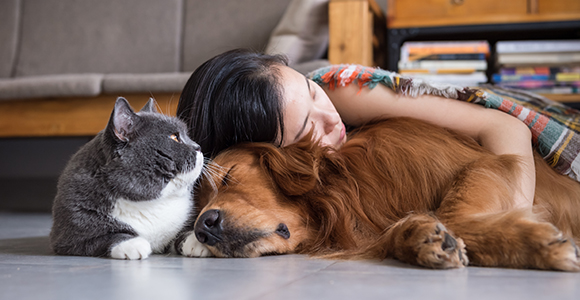WE CAN HELP YOU CALL US TODAY
WE CAN HELP YOU CALL US TODAY

While most people will outlive their pets, some do not, which can raise concerns amongst pet owners, especially the elderly, about who will care for their animals after they pass away. In some cases, an informal agreement with a loved one or close friend is enough to put the owner’s mind at ease, but in other situations, creating a pet trust is the best way to ensure that an animal will be provided for after the owner’s death. If you are planning your estate and have concerns about who will care for your pets in the event of your death, it is important to speak with an experienced estate planning attorney who can help you draft the necessary documentation and ensure that your wishes are respected.
The Illinois Pet Trust Act
Until 2005, animals were treated merely as property, so trusts established for their benefit were not recognized. Since that time, however, as many as 42 states have officially recognized pet trusts as an estate planning tool. For example, the Illinois Pet Trust Act, enacted in 2005, ensures that pet owners can take the following steps in regards to providing for their animals:
Generally, pet owners are allowed to leave as much as they believe necessary to care for the animal in the trust. While most people set aside a reasonable amount, there have been cases where a pet owner leaves behind millions of dollars to care for a single pet. This is also addressed by state law, which allows the supervising judge to reduce the amount of the gift to what is reasonably necessary to provide food and medical care for the animal. For this reason, testators are urged to stay away from leaving exorbitant sums to their animals in a pet trust, as those who do so risk having their final wishes contested and even altered.
What Happens After the Pet Passes Away?
Once a pet passes away, any remaining trust property will be distributed in one of three ways. The first option involves an official designation by the pet’s owner as to who will receive what’s left of the trust property after the death of the animal. If a testator does not make this provision, then the person who was designated as a residuary beneficiary for the entire estate will be able to collect the remainder of the pet trust. Under the third option, which applies when the decedent did not name a residuary beneficiary, the remaining property in the pet trust will be divided amongst the decedent’s heirs in accordance with the state’s intestacy laws.
Call Today to Discuss Your Case with an Experienced Glenview Estate Planning Attorney
If you have a pet and want to make sure that it is provided for after your death, please call 847-325-5559 to speak with one of the dedicated estate planning attorneys at Orlowsky & Wilson, Ltd. Attorneys at Law about creating a pet trust.